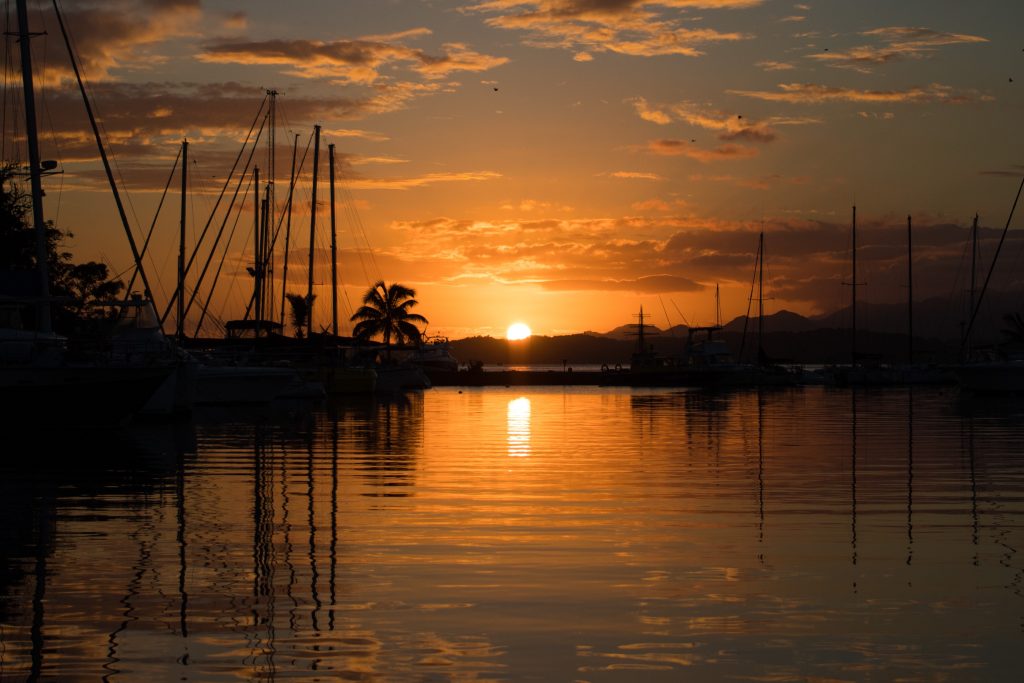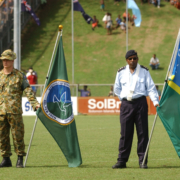From pandemic to endemic: living with Covid-19 in the Pacific

When the Mamas and Papas sang ‘The darkest hour is just before dawn’, they referenced an age-old belief that dire events appear bleakest just before they improve. Certainly, the rise in Covid-19 deaths and cases around the globe has made it as dark as it has ever been. So, do the array of vaccines coming on the market constitute the first rays of the post-Covid dawn?
The notion of a sudden end of the pandemic is problematic, unfortunately. According to a December 2020 briefing by World Health Organization, the ‘destiny’ of Covid-19 is to become endemic, not to disappear. This means that the occurrence of the disease will simply reduce to a level that will appear ‘normal’.
The transition from pandemic to endemic, however, will be very complicated, especially for the Pacific island states, on several counts.
The problems start with the nature of Covid-19 as a pandemic. Pandemics are essentially an epidemic that occurs simultaneously in a number of countries and even, as in the case of Covid, worldwide.
The WHO has grappled regularly with the nuances of what qualifies a particular level of disease as an epidemic or pandemic. Combinations of factors—such as intensity, spread, severity and seasonality—go into the definitional mix.
Covid creates a problem for the basic WHO definition of an epidemic as ‘an illness … clearly in excess of normal expectancy’. Since Covid is a novel coronavirus, there’s no baseline for normal expectancy.
Aspects of this issue were found when, for example, Fiji declared an outbreak of dengue fever and leptospirosis diseases in August 2020 while grappling with the pandemic raging in the rest of the world. At that time, the country had recorded only one Covid death, but there were four from dengue and 10 from leptospirosis.
The WHO declaration of Covid-19 as a global pandemic had significant consequences for public health policy in Fiji as elsewhere across the Pacific island region. Prophylactic barriers, including closing borders and imposing social distancing measures, were swiftly enacted on the strength of the WHO declaration.
The national announcement of the two disease outbreaks in August also produced significant public health responses in Fiji. However, despite the greater direct impacts of dengue and leptospirosis, those declarations had far fewer domestic consequences than the declaration of Covid as a pandemic.
The status of Covid is more than an exercise in semantics. It has real public health and social policy consequences. Deciding whether Covid should be treated as a genuine pandemic or in some sense a routine disease was an incredibly politically divisive issue in the United States throughout 2020.
For most of the rest of the world, Covid is a serious pandemic that will not be reduced to a manageable endemic disease until we have adequate vaccines and therapeutics to allow commerce, education and social life to return to normal.
At present, the global focus is on vaccines. The broad public expectation is that, despite the lethality of the seasonal flu, Covid might reasonably be treated as endemic if there are appropriate vaccines to allow it to be treated like the flu.
Cue the Mamas and Papas again. The increasing number of successful Covid vaccines appears to be the daybreak everyone wants. Yet, there seems to an unbearable darkness before the nightmare ends.
In reality, Pacific policymakers will have to confront two related challenges. First, the dawn ending the pandemic will come as a series of daybreaks not a single sunrise. The second will be the answer to when their country can safely end the prophylactic measures that they have used to hold Covid at bay.
The Covid-ravaged states of Europe and the US, for example, will decide that their measures to deal with Covid will be at an end when the policymakers and publics agree that it can safely be treated as an endemic disease like the seasonal flu. This will be a political as well as a public health decision.
Throughout the pandemic, creating safe travel bubbles has been beset by such issues. A decision by one country to downgrade Covid domestically to the status of a manageable endemic disease will require other states to respect that level of risk for their own people.
Before the Pacific island states open their borders fully, they will want to ensure their communities are adequately immunised against a disease they have not yet experienced. A policy misstep at this stage would undo all the sacrifice, economically and socially, made to date.
It’s especially pertinent to recognise in this regard that all but two (Guam and Niue) in the region are archipelagos. Thus, virtually every country is, in effect, a set of nested bubbles. Once the national borders are open, significant differences in risk will have to be managed internally.
However, the islands’ access to vaccines appears beset by continuing technical difficulties in both vaccine production and roll-out across the world. Agreements such as the COVAX Facility for ensuring fair access to vaccines for developing economies are looking less certain to provide the intended equity.
The Economist Intelligence Unit recently predicted that most low-income countries would not ‘have wide access to a vaccine before 2022–23’. Moreover, there’s some granularity to this prediction for the Pacific island countries which will contribute to significant regional variation.
The US’s Pacific territories and former dependencies reportedly are likely to match the rate of vaccine rollouts within the US. Elsewhere, the regional timetable appears variable, with some projections suggesting a final date as late as 2025, notwithstanding Australia’s pledge of $80 million to support the COVAX program in the region.
Given that Australia’s own experience of Covid has been closer to that of our island neighbours than most other parts of the world, it is important that our public health policy experience as well as the vaccines and ancillary supplies be shared equitably with our neighbours.
Hopes for the morning of a post-Covid Pacific achingly enthral, but without careful preparation it could become a false dawn.

